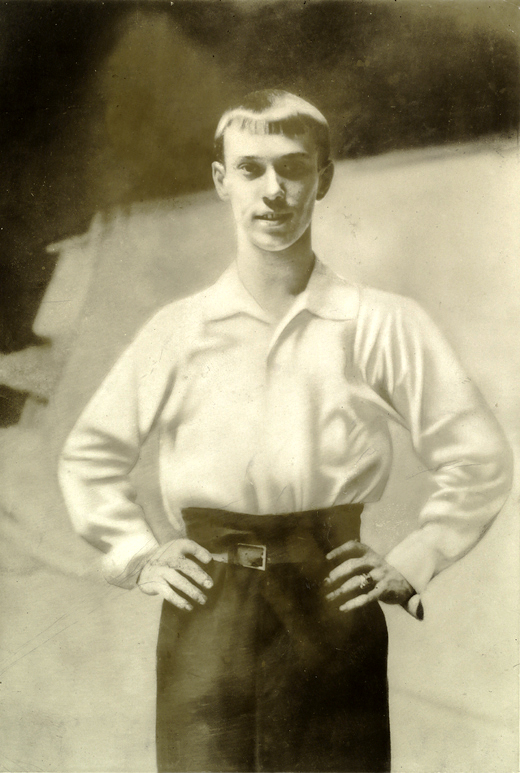Vaslav Nijinsky was a ballet dancer and choreographer cited as the greatest male dancer of the early 20th century. Born in Kiev to Polish parents, Nijinsky grew up in Imperial Russia but considered himself to be Polish. He was celebrated for his virtuosity and for the depth and intensity of his characterizations. He could dance en pointe, a rare skill among male dancers at the time and was admired for his seemingly gravity-defying leaps.
Nijinsky was introduced to dance by his parents, who were senior dancers with the travelling Setov opera company, and his early childhood was spent touring with the company. His older brother Stanislav and younger sister Bronislava "Bronia" Nijinska also became dancers; Bronia also became a choreographer, working closely with him for much of his career. At age nine Nijinsky was accepted at the Imperial Ballet School in St. Petersburg, the pre-eminent ballet school in the world. In 1907, he graduated and became a member of the Imperial Ballet, starting at the rank of coryphée instead of in the corps de ballet, already taking starring roles.
In 1909 he joined the Ballets Russes, a new ballet company started by Sergei Diaghilev. The impresario took the Russian ballets to Paris, where high-quality productions such as those of the Imperial Ballet were not known. Nijinsky became the company's star male dancer, causing an enormous stir amongst audiences whenever he performed. In ordinary life he appeared unremarkable and was withdrawn in conversation. Diaghilev and Nijinsky became lovers; the Ballets Russes gave Nijinsky the chance to expand his art and experiment with dance and choreography; he created new directions for male dancers while becoming internationally famous.
In 1912 Nijinsky began choreographing original ballets, including L'après-midi d'un faune to music by Claude Debussy, Le Sacre du Printemps to music by Igor Stravinsky, Jeux , and Till Eulenspiegel . Faune, considered one of the first modern ballets, caused controversy because of its sexually suggestive final scene. At the premiere of Le Sacre du Printemps fights broke out in the audience between those who loved and hated this startling new style of ballet and music. Nijinsky originally conceived Jeux as a flirtatious interaction among three males, although Diaghilev insisted it be danced by one male and two females.
In 1913, Nijinsky married Hungarian Romola de Pulszky while on tour with the company in South America. The marriage caused a break with Diaghilev, who soon dismissed Nijinsky from the company. The couple had two daughters together, Kyra and Tamara Nijinska.
With no alternative employer available, Nijinsky tried to form his own company, but this was not a success. He was interned in Budapest, Hungary during World War I, under house arrest until 1916. After intervention by Diaghilev and several international leaders, he was allowed to go to New York for an American tour with the Ballets Russes. Nijinsky became increasingly mentally unstable with the stresses of having to manage tours himself and deprived of opportunities to dance. After a tour of South America in 1917, and due to travel difficulties imposed by the war, the family settled in St. Moritz, Switzerland. His mental condition deteriorated; he was diagnosed with schizophrenia in 1919 and committed to a mental asylum. For the next 30 years he was in and out of institutions, never dancing in public again.
Wikipedia
✵
12. March 1889 – 8. April 1950
